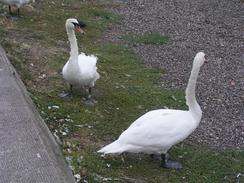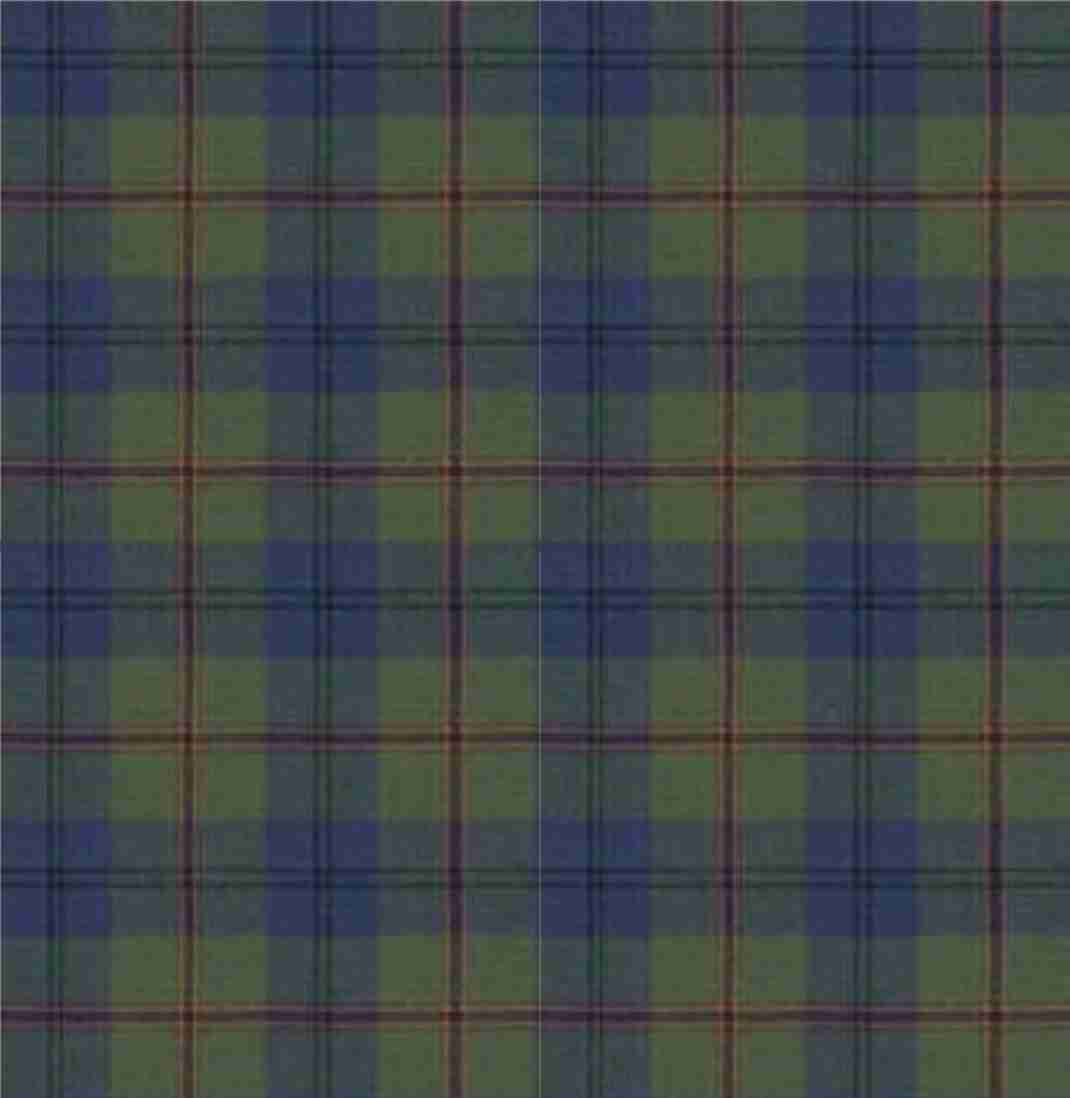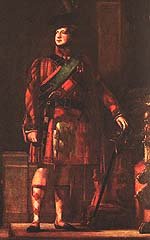
 |
|
|
Glen Discovery |
 |
Curious swans at Broughty Ferry, wondering where the Pelican came from. - But not nearly as much as the herd of twitchers following its every move!
|

|
 |
Do you like the tartan? From 1747
to 1782, the use of tartan and wearing of the kilt or belted plaid, except
by the Highland regiments of the British army, became an offence punishable
by transportation to the colonies. In 1822, Sir Walter Scott stage-managed
the visit of George IV to Edinburgh, in which the king himself was persuaded
to wear a kilt. From then on every family in Scotland had to have its
own clan tartan made by the woollen weavers of Lowland Stirlingshire and
Clackmannan. Most modern tartans (with a few exceptions) date from this
time or after. The process is by no means complete and it is common today
for companies and institutions in Scotland to have their own tartan.
Although I am descended from a number of Highland clans, my male line
'Lawrie' ancestors lived in Banff in the 17th century. Some of them joined
the Jacobite army which was defeated at Culloden in 1746. Other Lawries
in the 16th to 18th centuries were found in the Lothians, in Lanarkshire
and in Dumfries (the famous Annie Laurie of Maxwelton). One of my distant
cousins has designed and registered a 'Lawrie' tartan and I have used
it as a background with his kind permission. See the
Laurie tartan company. |
 |